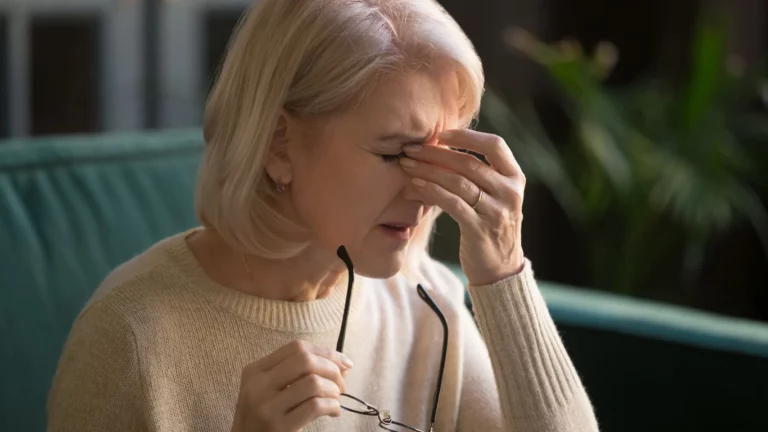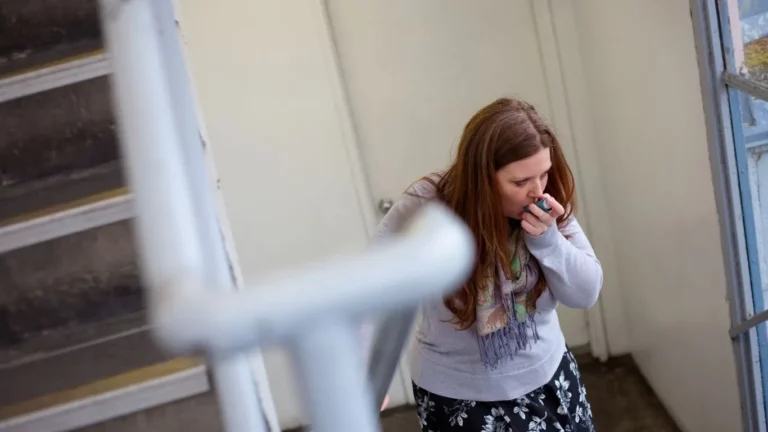Beat GERD and Feeling Full Quickly with These Life-Changing Tips
If you’ve ever found yourself pushing your plate away halfway through dinner, not because you’re full but because you feel uncomfortably bloated or stuffed, you’re not alone. As someone who’s worked hands-on in a busy gastroenterology clinic, I’ve talked to countless patients who mention GERD and feeling full quickly in the same breath. And let me tell you—when your stomach starts throwing signals like that, it’s not just annoying; it can seriously mess with your day-to-day life. Whether you’re someone who loves a big Sunday brunch or just wants to enjoy a simple sandwich without discomfort, this can be a real hurdle.
Understanding GERD and That “Full Too Fast” Feeling

Let’s break this down a little. GERD—short for Gastroesophageal Reflux Disease—isn’t just about heartburn (though that’s a big part of it). In the clinic, we often saw patients who didn’t even have typical reflux symptoms. Instead, they’d say things like, “I feel full after just a few bites,” or “I can’t eat much without discomfort.” That sensation has a name too: early satiety. And when it shows up alongside GERD, it can make meals feel more like a chore than a pleasure.
So, what’s actually happening in there? Well, when acid reflux becomes chronic, it can irritate and inflame the lining of the esophagus. In some cases, it even affects the nerves that help regulate digestion. When your digestive system isn’t functioning smoothly, it can slow things down—and that delay can make your stomach feel like it’s working overtime, even when it’s only had a small portion of food.
What Causes That Early Fullness?
From my experience assisting with diagnostic procedures like upper endoscopies and manometry tests, there are a few usual suspects when it comes to feeling full quickly with GERD:
- Delayed gastric emptying (Gastroparesis): This is a fancy term for when your stomach is being super slow to empty. It’s common in GERD patients and makes that full feeling stick around longer than it should.
- Hiatal hernia: Many GERD patients we saw had this sneaky condition where part of the stomach pushes up through the diaphragm. It adds pressure in all the wrong places, affecting how full you feel.
- Esophageal motility disorders: If the esophagus isn’t doing its job of pushing food down smoothly, it can lead to a backlog that tricks your brain into thinking your belly is full when it’s not.
And sometimes, it’s not one thing—it’s a combo. I remember one patient who had both mild gastroparesis and a hiatal hernia, and every meal felt like a balancing act for her.
How GERD Messes with Your Mealtime Rhythm

Let’s get real for a second: GERD isn’t just a medical condition—it’s a daily life disruptor. I had a regular patient, Maria, who loved cooking big meals for her family but found herself avoiding the dinner table. She’d sit down and barely make it through a few bites before that uncomfortable fullness set in. That’s not just physical—it’s emotional too. It’s frustrating to feel like your body’s working against you.
When GERD gets in the way of digestion, it throws off your body’s natural signals. Instead of the usual flow—eat, digest, feel full—everything becomes jumbled. Your stomach might be half-empty, but your brain is already hitting the brakes. It’s no wonder so many patients told me they felt like eating became a guessing game.
Does Stress Make It Worse?
Oh, 100%. In fact, some of the most intense flare-ups I saw happened during stressful life events. There’s a very real mind-gut connection at play here. Stress can affect how your gut moves, how much acid you produce, and how sensitive your nerves are. It can even slow down digestion, making that “too full too fast” feeling even worse.
What worked for some of our patients? Not just medication—though that helps—but also small daily routines like:
- Mindful eating: Slowing down and chewing thoroughly. Sounds simple, but it’s a game changer.
- Keeping a food journal: This helped patients spot their own food triggers and patterns.
- Stress reduction habits: Deep breathing, walks after meals, or even short meditation sessions.
These aren’t magic cures, but in real life, they make a difference. That’s what I loved most about working in gastroenterology—we didn’t just treat symptoms, we helped people get their lives back.
The Overlap of GERD and Digestive Sluggishness

It’s not all in your head. Feeling full quickly with GERD is a legit, physical issue—and one that’s more common than people think. When your digestive tract isn’t moving efficiently, that pressure builds. For some patients, it feels like they’ve eaten a Thanksgiving dinner after a few spoonfuls of soup.
From a clinical perspective, this often means there’s a slowdown somewhere in the system. For a few patients I worked with, diagnostic imaging and motility studies confirmed it. But even without fancy tests, your body tells you what’s up. If you’re tuning into those signals and something doesn’t feel right, it’s worth paying attention to.
Why Some Foods Hit Harder Than Others

Alright, let’s talk food—because honestly, that’s where most GERD frustrations start. In my experience at the clinic, food diaries were gold. You’d be surprised how often someone would say, “I barely ate anything,” and yet the trigger was hidden in plain sight: maybe that sneaky splash of tomato sauce or a beloved spicy taco.
When you’re dealing with GERD and feeling full quickly, certain foods just seem to crank things up a notch. The acid production, the bloating, the pressure—all of it. It’s not the same for everyone, but here’s a general list we used to share with patients who wanted a solid starting point:
- Acidic foods: Think tomatoes, citrus, vinegar-based dressings.
- Fried or fatty foods: These slow digestion and can sit in your stomach longer, triggering that “ugh, I’m so full” feeling.
- Caffeine and chocolate: Sad, I know. But they relax the lower esophageal sphincter and let acid sneak up.
- Carbonated drinks: Fizzy bubbles = more pressure in the belly.
But here’s the thing: not everyone reacts to the same triggers. One of our patients swore she could handle hot sauce like a champ, but even a little bit of orange juice would mess her up for the whole day. It’s super personal. That’s why it’s important to listen to your body and track what works—and what doesn’t.
Tips That Actually Help (From Real-Life Patients)
Let me share some go-to strategies that came straight from our exam rooms, support calls, and follow-ups with people just trying to eat a meal in peace. These are practical, tried-and-true tips that go beyond just popping a PPI and hoping for the best.
- Smaller meals, more often: Instead of three big meals, break your day into 5-6 smaller ones. It’s easier on the digestive system and less likely to trigger reflux or fullness.
- Stay upright after eating: Don’t lie down. I repeat: don’t lie down. This was the number one rule in our clinic handouts. Let gravity help you out.
- Keep a “safe food” list: Build your own list of go-to meals that don’t cause symptoms. It makes grocery shopping and meal planning way easier.
- Hydrate, but wisely: Sip water throughout the day instead of chugging a glass right before meals. Too much fluid with food can worsen that overstuffed sensation.
And don’t overlook posture! Patients who ate hunched over their desks or while lounging on the couch reported more discomfort. Just sitting up straight can make a difference—seriously.
Is There a Link Between GERD, Bloating, and Sluggish Digestion?

Let’s not sugarcoat it—GERD is rarely a solo act. It brings friends. Bloating, sluggish digestion, nausea… sometimes even constipation. And when you’re also feeling full way too soon, it adds this weird overlap that makes it hard to pinpoint what’s causing what.
From my clinical experience, there’s definitely a pattern. We saw that when the upper GI tract is irritated (like with chronic GERD), it can throw off the rhythm of the whole digestive system. Imagine a traffic jam—if the cars up front aren’t moving, everyone behind gets stuck too. That’s your gut during a flare-up.
And the bloating? Oh, it’s real. A lot of patients would describe it as “tight pressure under the ribs” or a “balloon in my belly.” Combine that with a slow stomach emptying, and even a modest lunch can feel like a three-course feast gone wrong.
When It Might Be Time to Investigate Further
Sometimes, feeling full quickly isn’t *just* GERD. I say this not to alarm you, but to empower you. If you’ve ruled out dietary triggers and made all the lifestyle tweaks, but the symptoms persist, it’s worth having a real convo with a GI specialist.
Here are a few red flags we used to keep an eye out for:
- Unintentional weight loss
- Persistent vomiting or nausea
- Trouble swallowing or food feeling stuck
- Severe bloating that doesn’t ease up
In those cases, we’d often schedule an upper endoscopy or even a gastric emptying study. These tests help rule out things like gastroparesis, ulcers, or even eosinophilic esophagitis—all of which can mimic or worsen GERD symptoms.
Taking Control of GERD and Feeling Full Quickly

The good news? You’re not stuck with this. With the right approach—one that’s a mix of lifestyle changes, symptom tracking, and possibly medical intervention—you can start feeling like yourself again. I’ve seen so many people go from dreading meals to enjoying food again. It takes a little trial and error, but it’s totally doable.
And remember, no two digestive systems are exactly alike. What works for your neighbor might not work for you—and that’s okay. Your journey with GERD and feeling full quickly is yours, and your care should reflect that.
I always encouraged patients to advocate for themselves. Keep asking questions, keep tracking symptoms, and don’t settle for answers that don’t feel right. You deserve care that actually helps.
Finding Long-Term Relief: Lifestyle Meets Medical Management

By the time patients made it through dietary changes and symptom journaling, they often circled back to the same question: “What else can I do?” And honestly, that’s a fair question—because managing GERD and feeling full quickly is rarely a one-and-done fix.
Over the years, I’ve seen that the real sweet spot is when lifestyle strategies and medical options work hand in hand. Yes, changing how and what you eat helps. But for many people, it’s not enough on its own. If acid is still making its way back up, or if your stomach’s moving slower than it should, that’s where medications or further intervention come into play.
Here are a few common approaches I saw work really well for patients who’d been struggling for a while:
- Proton Pump Inhibitors (PPIs): These are often prescribed to reduce stomach acid and give the esophagus a break from constant irritation. They’re effective but should always be used under supervision, especially long-term.
- H2 blockers: A milder alternative to PPIs, often used for milder or intermittent symptoms.
- Prokinetic agents: These help the stomach empty faster, which can be really useful when early satiety or gastroparesis-like symptoms are involved.
- Botox injections (in select cases): Yep, the same Botox used for wrinkles is sometimes injected into the pylorus (the muscle that lets food leave your stomach) to help things move along more smoothly.
And for patients with structural issues like a hiatal hernia or severe reflux that doesn’t respond to meds, surgery or endoscopic procedures (like LINX or fundoplication) are sometimes the best path forward. We had a few patients come back post-op absolutely glowing. “I finally enjoyed a full dinner,” one said to me with the biggest smile—honestly, it made all the paperwork worth it.
Supporting Your Gut Daily (Little Habits, Big Wins)

While meds and procedures are helpful, don’t underestimate the power of daily habits. As simple as it sounds, consistent routines can be just as crucial for symptom control as prescriptions.
Here’s a checklist we used to hand out to our GERD patients who felt full too quickly or experienced lingering discomfort:
- Eat meals at the same time daily: Your gut loves a routine. It can actually help regulate digestion better.
- Don’t rush through meals: Put your fork down between bites. Chew slowly. Let your stomach keep up with your mouth.
- Keep stress in check: Your GI tract and nervous system are besties. Meditation, yoga, or even just deep breathing before meals can help.
- Raise the head of your bed: Sleeping on an incline reduces nighttime reflux. A foam wedge or adjustable bed does the trick.
- Stay active: Gentle movement like walking after meals improves digestion and reduces bloating.
One of our long-term patients made walking her secret weapon. A quick stroll after every meal—not strenuous, just a few blocks. She said it changed everything: fewer symptoms, less bloating, and she could actually finish a full portion of food without regretting it.
Final Thoughts: Living with GERD and Feeling Full Quickly Doesn’t Mean Settling
At the end of the day, dealing with GERD and feeling full quickly can be frustrating—but it’s not hopeless. I’ve met patients from all walks of life, and whether they were managing mild symptoms or navigating more complex digestive issues, they all had one thing in common: they just wanted to feel normal again.
And that’s totally possible. With a little patience, some trial-and-error, and a solid care team, most people find what works for them. You don’t have to live in fear of your next meal. It might take a few tries to get there, but with the right info and support, relief is within reach.
As a former medical assistant, I’ve seen how validating it is for patients to feel heard and guided. So if you’re feeling dismissed or stuck, advocate for yourself. Seek out a gastroenterologist who takes your symptoms seriously and explores all the angles—not just the obvious ones.
There’s no one-size-fits-all fix, but there is a path forward. And it starts with listening to your body, making intentional choices, and working with professionals who respect your experience.
References
- American Gastroenterological Association
- Mayo Clinic
- Cleveland Clinic
- National Institute of Diabetes and Digestive and Kidney Diseases (NIDDK)
Disclaimer
This article is based on personal experience and general medical knowledge gained through clinical work in a gastroenterology setting. It is not intended as a substitute for professional medical advice, diagnosis, or treatment. Always consult with a qualified healthcare provider regarding any medical concerns or before making significant lifestyle or treatment changes.

Camellia Wulansari is a dedicated Medical Assistant at a local clinic and a passionate health writer at Healthusias.com. With years of hands-on experience in patient care and a deep interest in preventive medicine, she bridges the gap between clinical knowledge and accessible health information. Camellia specializes in writing about digestive health, chronic conditions like GERD and hypertension, respiratory issues, and autoimmune diseases, aiming to empower readers with practical, easy-to-understand insights. When she’s not assisting patients or writing, you’ll find her enjoying quiet mornings with coffee and a medical journal in hand—or jamming to her favorite metal band, Lamb of God.







